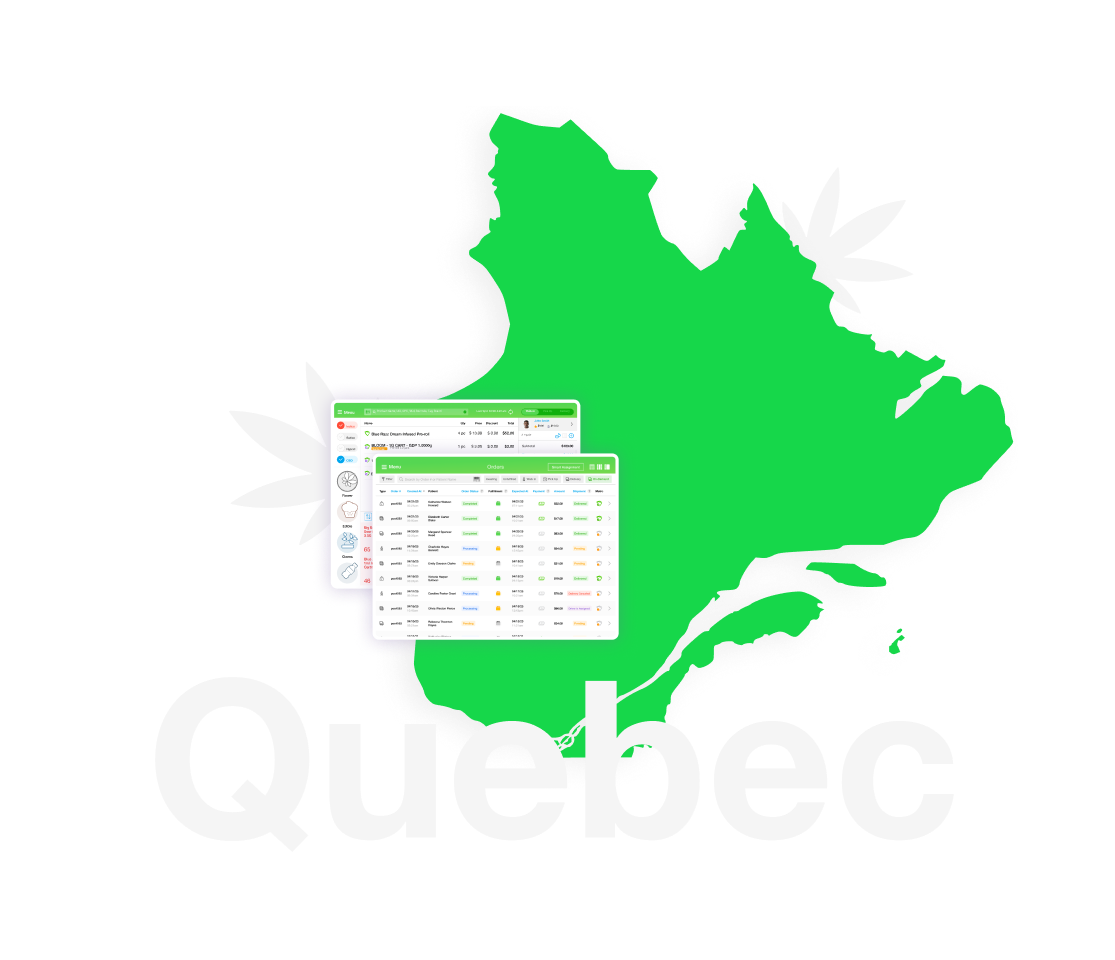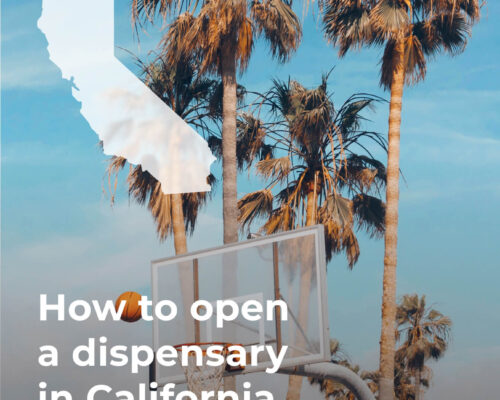Quebec’s legal cannabis market is one of the most regulated and competitive in Canada. Licensed dispensaries in Quebec must comply with strict Health Canada guidelines, provincial sales and excise tax requirements, and Quebec’s language laws. At the same time, customers expect convenience, transparency, and exceptional service from their cannabis store.
Running a successful cannabis retail operation requires more than a standard point of sale system—it requires a specialized solution tailored to the cannabis industry.
That’s where IndicaOnline’s Quebec Cannabis POS software comes in. Built for cannabis retailers in Quebec, it combines advanced compliance tracking, inventory management, online sales integration, and delivery tools in one scalable platform.
Whether you’re opening your first dispensary in Montreal or expanding to multiple cannabis stores across Quebec, IndicaOnline’s cannabis POS system helps you stay compliant, efficient, and profitable.
Explore how IndicaOnline’s Quebec Cannabis POS Software supports real-time bilingual interfaces and inventory control across your operations.
Top Features for Quebec-Based Cannabis Retailers
Every cannabis retail operation in Quebec is unique. From boutique shops in urban centers to multi-location franchises in regional areas, IndicaOnline adapts to your business needs while keeping you compliant and competitive.
Here are the key features that make our cannabis POS system the best choice for Quebec dispensaries:
- Real-Time Inventory Management: Inventory accuracy is critical for both compliance and customer satisfaction. Our cannabis POS includes real-time tracking of cannabis products, automated stock level alerts, and seamless integration with your seed-to-sale tracking system. Minimize shrinkage, prevent overstocking, and avoid stockouts of popular products.
- Tablet-Optimized Mobility: Modern cannabis retail is fast-paced. IndicaOnline’s tablet-optimized POS lets your staff move freely on the floor to help customers, manage products, and process sales anywhere without being tethered to a fixed terminal.
- Digital Signature Capture: Stay compliant with Quebec’s ID verification and delivery requirements. Our system captures customer signatures digitally during in-store pickups or delivery handoffs, creating a secure digital log for your records.
- Multi-Location Management: Operate multiple dispensaries? IndicaOnline lets you manage all your Quebec locations from a single dashboard. Centralize sales data, manage transfers between stores, and oversee staff permissions with ease.
- Customizable Roles & Permissions: Assign different access levels based on employee roles. From budtenders to managers, you control who sees what, protecting sensitive data while empowering your team to do their jobs efficiently.
- Integrated E-Commerce with Sweede: Online shopping is now a core part of the cannabis industry. IndicaOnline integrates seamlessly with Sweede to bring your inventory online with a fully bilingual, real-time synchronized menu. Customers can browse and order online while your staff fulfills orders with ease.
Cannabis Compliance, Simplified for Quebec Retailers
Quebec’s cannabis regulations can be daunting for dispensary owners. You need to track every gram of product, ensure accurate tax calculations, and maintain detailed records for Health Canada and provincial audits.
IndicaOnline’s POS system was designed specifically for the cannabis industry, so compliance is built-in, not an afterthought.
Here’s how we simplify compliance:
- Real-time inventory synchronization, helping you maintain accurate stock levels and spot discrepancies immediately.
- Automatic provincial sales and excise tax calculations on every transaction.
- Ready-to-submit audit reports to save you hours of manual work.
- Full integration with seed-to-sale tracking systems for Health Canada reporting.
- Daily compliance data syncing, ensuring your records are always up to date.
By eliminating the risk of human error and streamlining your reporting process, IndicaOnline lets you focus on what matters most, serving your customers and growing your business.
Stay ready for audits with real-time tracking, threshold monitoring, and daily compliance report generation, all tailored to Quebec’s cannabis legislation.
Real-Time Tools for Delivery & Pickup Services in Quebec
With the rise of e-commerce, more cannabis customers expect fast and convenient delivery and pickup options. Quebec’s laws allow for delivery under strict guidelines, and IndicaOnline helps you meet those requirements while delivering a great customer experience.
Our cannabis POS supports delivery & pickup with:
- GPS-Enabled Driver App: Track each driver’s route in real time and monitor delivery progress.
- Optimized Delivery “Runs”: Plan multi-order routes to maximize efficiency and reduce fuel costs.
- Legal Document Logging: Capture customer signatures and photos for ID verification and age compliance.
- Integrated Delivery Reporting: Every delivery syncs with your POS and inventory system, so your records remain complete and compliant.
Offering delivery and pickup doesn’t have to mean extra complexity, IndicaOnline simplifies the process so you can reach more customers and grow your revenue.
Deliver efficiently and compliantly with a POS that supports real-time tracking, customer communication, and compliance logging.
Analytics Tools That Drive Revenue & Streamline Operations
Data-driven decision-making is a competitive advantage in the cannabis industry. IndicaOnline equips your dispensary with advanced reporting and analytics tools to help you stay ahead.
- View real-time performance dashboards by product, category, or team member.
- Analyze customer demographics and shopping behavior to tailor promotions and inventory.
- Forecast inventory needs and receive automated restock alerts.
- Compare the performance of multiple cannabis stores across Quebec.
- Generate audit-ready Health Canada and provincial compliance summaries.
With IndicaOnline’s built-in analytics, you can make smarter business decisions, optimize operations, and increase profitability.
Plan smarter with predictive analytics, customizable dashboards, and audit-ready exports, all powered by Looker and built into your POS.
Scale Online Sales with Seamless POS & E-Commerce Integration
Online sales are a critical growth channel for dispensaries in Quebec. IndicaOnline helps you deliver a superior online shopping experience by seamlessly connecting your POS with your e-commerce platform.
Here’s how you can grow your online cannabis sales:
- Sweede Integration: Create a fully synchronized online menu, updated in real time.
- Inventory Sync: Ensure your online and in-store inventory always match.
- Flexible Fulfillment: Offer curbside pickup or delivery, with full order visibility.
- Loyalty Programs & Promotions: Extend your loyalty program and run promotions online and in-store.
By unifying your online and in-store operations, IndicaOnline helps you maximize your revenue opportunities while delivering a seamless customer experience.
Grow your dispensary’s revenue with a POS system that makes online sales, delivery, and retail management work in perfect sync.
Why IndicaOnline is Trusted by Cannabis Retailers in Quebec
IndicaOnline has years of experience serving the cannabis industry in Canada and the U.S., and our software reflects that expertise. Hundreds of cannabis dispensaries across Quebec rely on us to keep their operations running smoothly.
Here’s what sets us apart:
- Purpose-built for cannabis retailers, not adapted from generic retail POS systems.
- Fully bilingual, meeting Quebec’s unique language requirements.
- Proven compliance tools that minimize risk and save time.
- Scalable architecture for single shops or multi-location enterprises.
- Exceptional support and training from cannabis industry experts.
When you choose IndicaOnline, you’re choosing a partner dedicated to your success.
Start your free trial today and experience the IndicaOnline difference for your Quebec cannabis store.
Quebec Cannabis POS Software – FAQs
- What makes IndicaOnline’s POS system ideal for Quebec dispensaries?
IndicaOnline was designed specifically for the cannabis industry. Its compliance tools, delivery features, and seamless e-commerce integration make it the perfect choice for Quebec’s regulated cannabis market. - How does the POS help with compliance?
Our system includes real-time inventory tracking, audit-ready reporting, tax calculations, and seed-to-sale integration. - Is the system easy to use for my staff?
Absolutely. IndicaOnline is designed to be intuitive and mobile-friendly. We also offer full training and support to get your staff up to speed quickly. - Does IndicaOnline work for multi-location businesses?
Yes. Manage multiple stores from one dashboard, with centralized control over inventory, staff, and sales. - How can I start using IndicaOnline in my Quebec dispensary?
It’s simple, book a live demo or start a free trial today. Our team will guide you through setup and onboarding.
Ready to Take Your Quebec Cannabis Dispensary to the Next Level?
Your cannabis retail operation deserves a point of sale system built specifically for your industry and your market. IndicaOnline’s Quebec Cannabis POS Software delivers everything you need to stay compliant, delight customers, and grow your business.
- Fully bilingual, fully compliant, fully scalable.
- Designed for dispensaries, trusted by hundreds of cannabis retailers.
- Easy to implement, easy to use, easy to scale.
Book your free demo now and see why Quebec’s cannabis industry runs on IndicaOnline.





















